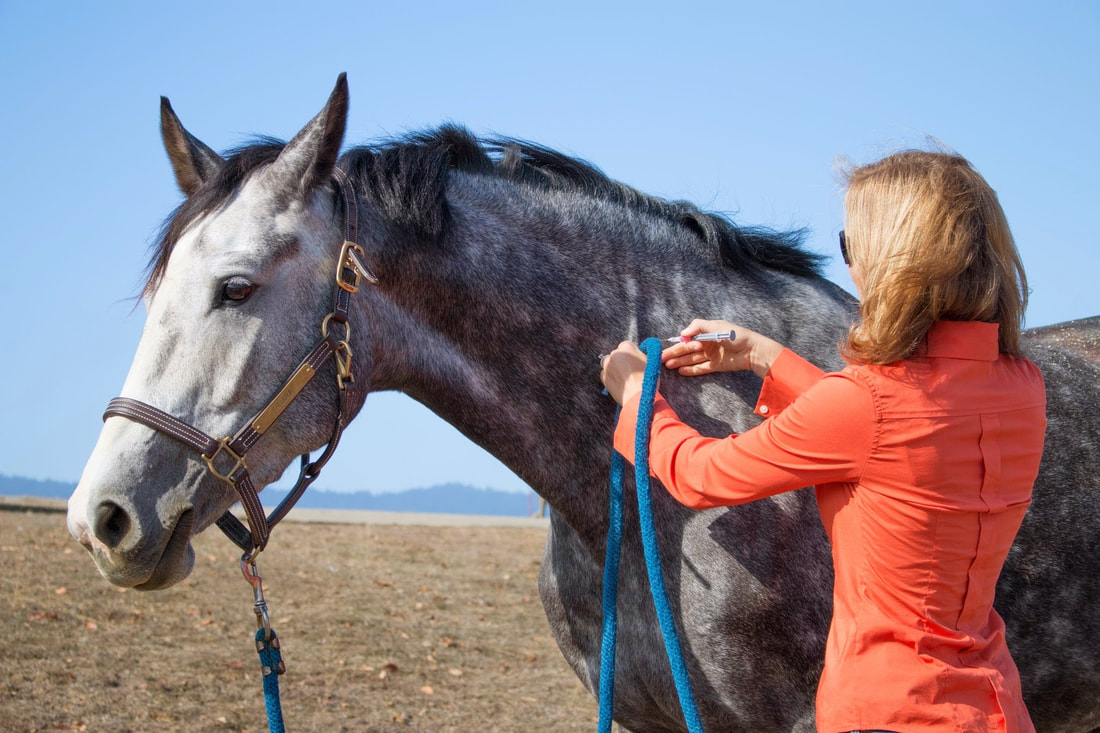|
Since first being recognized in the United States in 1999, West Nile virus (WNV) has posed a serious threat to horses and humans alike. In the equine population, the virus is transmitted when a mosquito takes a blood meal from a bird infected with WNV, then feeds on a horse. While many horses exposed to WNV experience no signs of illness, the virus can cause inflammation of the brain and spinal cord. In some cases, especially in older horses, WNV can be fatal. As a horse owner, prevention is the key to reducing your horse’s risk of contracting WNV. Follow these guidelines from the American Association of Equine Practitioners (AAEP) to protect your horse against WNV:
For more information about the virus, contact the Starwood Equine office. Additional information about WNV can be found on the AAEP’s website at http://www.aaep.org.
Reprinted with permission from the American Association of Equine Practitioners.
0 Comments
Leave a Reply. |
Topics
All
Archives
May 2021
|
Privacy Policy | Copyright © 2019 Starwood Equine Veterinary Services, Inc. All rights reserved.


 RSS Feed
RSS Feed